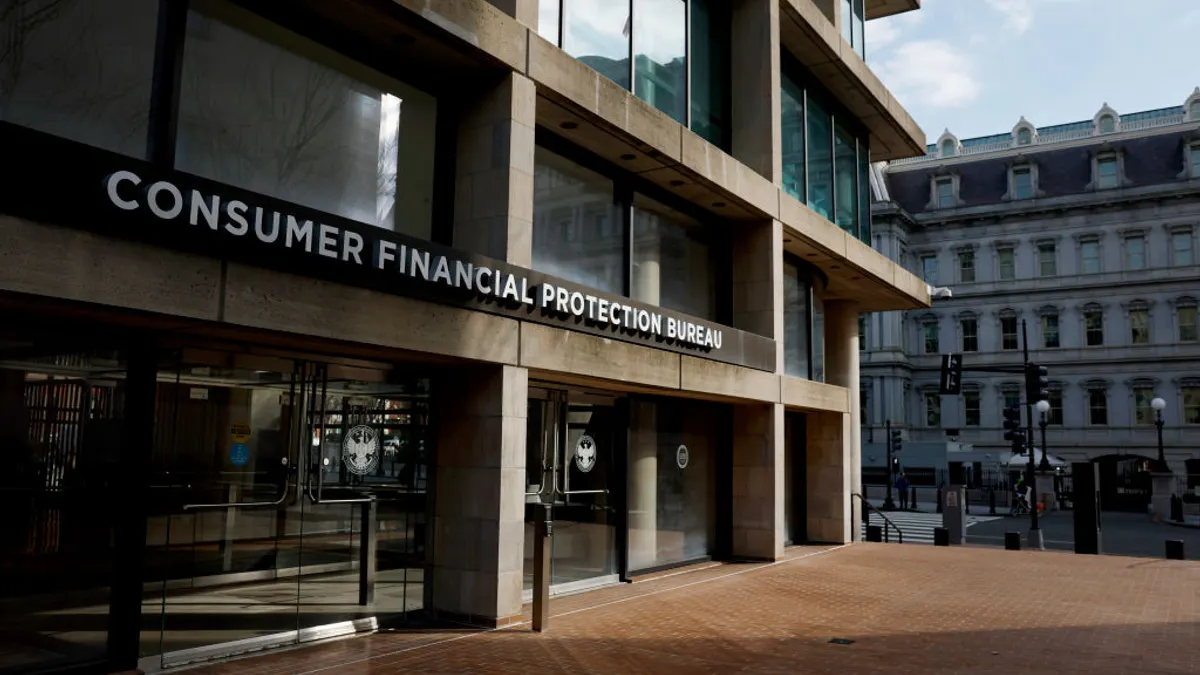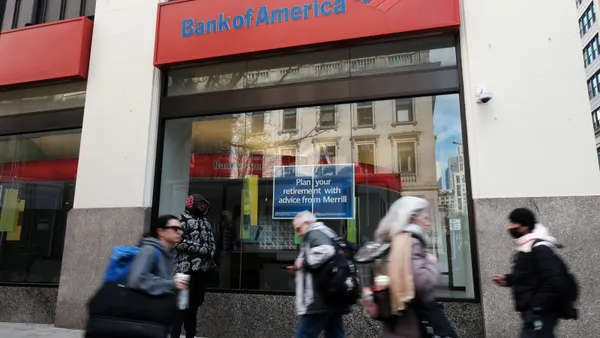Synapse Financial Technologies allegedly violated consumer protection laws by failing to keep proper track of consumers’ funds, and failing to ensure the records they kept matched those of partner banks, according to charges by the Consumer Financial Protection Bureau.
The watchdog filed a lawsuit against Synapse on Aug. 21, 16 months after Synapse’s bankruptcy exposed a multimillion-dollar shortfall of funds between fintech user accounts and the banks Synapse connected them to.
“Consumers were substantially injured by Synapse’s acts,” according to the lawsuit. “Consumers did not have any access to their money for weeks or months as Partner Banks reconciled their records with Synapse’s records and then distributed funds to consumers. Many consumers have not received the full amount of their account balance with their FinTech Platform.”
In a stipulated judgment and order entered concurrently in the Synapse bankruptcy case on Aug. 21, the CFPB proposed a $1 civil money penalty enabling it to access the civil penalty fund to redress harm to customers, such as users of affected fintechs Yotta, Copper and Juno. As of September 2024, the CFPB civil penalty fund had more than $118 million in unallocated funds available for victim relief.
“It’s encouraging to see the Consumer Financial Protection Bureau take decisive action to prioritize consumers in this case,” Sam Mesquita, a Yotta customer whose funds remain tied up, told Banking Dive via text.
“Their persistence offers hope that impacted individuals will see some resolution, and it sends an important message that banks and fintechs will be held accountable for practices that misled people into believing their money was fully protected – at a time when access to savings is essential,” Mesquita said.
The CFPB using its fund to pay end users “would be a better outcome for claimants than continuing to search for someone to take the blame on their own,” Todd Baker, a senior fellow at the Richard Paul Richman Center for Business, Law, and Public Policy at Columbia Business and Law Schools, told American Banker when plans for the lawsuit were announced earlier this month.
“Without this, they would likely get nothing from the bankruptcy process, as there is no money left in Synapse to finance further efforts at recovery,” Baker said.
The proposed final judgment also provides for injunctive relief and prohibits Synapse’s sale of customer information.
The CFPB has repaid consumers who’ve been harmed by fintechs before, including $384 million to 191,000 victims of Think Finance’s illegal lending practices last year, which had tricked them into repaying loans they didn’t owe.
Jelena McWilliams, Synapse’s court-appointed Chapter 11 bankruptcy trustee, has asked that the court enter the stipulated judgment and order no later than Sept. 16. Missing that deadline would mean end users may have to wait an additional six months for the funds to be allocated, according to the civil penalty fund’s allocation schedule.
A bankruptcy court hearing is scheduled for Sept.11.
Neither the CFPB nor Synapse founder Sankaet Pathak responded to requests for comment.














